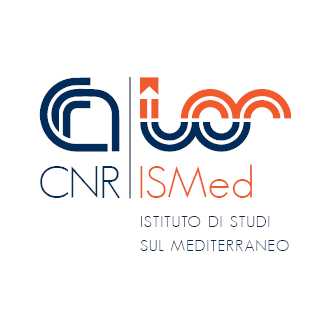Naor Ben-Yehoyada

Profilo
Il lavoro di Naor Ben-Yehoyada esamina la migrazione non autorizzata, la giustizia penale, economia politica e le conseguenze dello sviluppo, e gli immaginari politici transnazionali nel Mediterraneo centrale e orientale. La sua monografia, The Mediterranean Incarnate: Transnational Region Formation between Sicily and Tunisia since World War II (Chicago Press, 2017), offre un’antropologia storica del Mediterraneo. Egli è è specificamente interessato ai processi attraverso i quali le regioni transnazionali si formano e si dissolvono. Propone di considerare tali spazi come costellazioni in continua evoluzione e di mostrare come sia possibile studiarle a partire dalle navi in movimento che intrecciano queste costellazioni e che mettono in scena le loro relazioni sociali e le loro dinamiche sociali in piena vista. Ha scritto anche pezzi brevi sulle diverse delle dinamiche della migrazione marittima non autorizzata e dell’interdizione, nonché sul ruolo che il Mediterraneo e i fondali giocano nella retrospettiva politica italiana.
Il suo attuale progetto segue il continuo dibattito su cosa sia la mafia e su come le forme di indagine antimafia (da parte di magistrati, giornalisti, attivisti politici, forze di polizia, ecc.) si scontrano con questo dilemma. Segue il recente processo per l’omicidio 1988 per l’omicidio di un giornalista e i precedenti casi criminali chiave che il processo stesso ha fatto rivivere e che, si presume, abbiano tutti a che fare con la mafia. L’autore si concentra sui dubbi, i sospetti e le controversie che sorgono all’intersezione di diverse forme di indagine.
Pubblicazioni
Tra le pubblicazioni più recenti si segnalano:
2022 The Mediterranean Redux: Ethnography, Theory, Politics. co-edited with Paul Silverstein. London: Routledge, 2022.
2017 The Mediterranean Incarnate: Region Formation between Tunisia and Sicily since WWII, University of Chicago Press. In Italian
2019 Incorporare il Mediterraneo: formazione regionale tra Sicilia e Tunisia nel secondo dopoguerra. Trans. Nicola Pizzolato. Milano: Meltemi. Refereed Journal Articles
2020 “Introduction: Remapping Mediterranean Anthropology.” History and Anthropology 31 (1): 1–21. With Heath Cabot (University of Pittsburgh) and Paul Silverstein (Reed College).
2019 “Di Altre Fratellanze?” VOCI Annuale Di Scienze Umane XVI: 65–88.
2018 “Where Do We Go When We Follow the Money? The Political-Economic Construction of Antimafia Investigators in Western Sicily.” History and Anthropology 29 (3): 359–75.
2016 “Follow me and I will make you fishers of men:’ The moral and the political scales of migration in the Central Mediterranean,” JRAI 22:1, 183-202.
2014 “Transnational Political Cosmology: a Central-Mediterranean Example,” Comparative Studies in Society and History (CSSH 56 (4), 870-901.
2013 “The Men Who Knew Too Much: Sardines, Skills, and the Labor Process in Jaffa, Israel, 1948–1979.” Focaal (67): 91–106.
2011 “The Moral Perils of Mediterraneanism: Second Generation Immigrants Practicing Personhood between Sicily and Tunisia.” Journal of Modern Italian Studies 16:3. Book Chapters
2018 “Heritage Washed Ashore: Underwater Archaeology and Regionalist Imaginaries in the Central Mediterranean.” In Critically Mediterranean, eds. Yasser Elhariry and Edwige Tamalet Talbayev, 217–39. Palgrave Macmillan, Cham, 2018.
2014 “Mediterranean Modernity?” in A Companion to Mediterranean History, edited by Peregrine Horden and Sharon Kinoshita, 1st ed., 107–21. London: John Wiley & Sons.
2017 “A proposito di «A Companion to Mediterranean History».” With Fiume, Giovanna, Quaderni Storici 153 (3): 848–66.
2016 “L’economia della pesca di Mazara del Vallo in prospettiva storica.” Co-authored with Salvatore Cusumano, Vito Pipitone, Tiziana Polizzi, Raul Sanchez de la Sierra. StrumentiRes: Rivista online della Fondazione Res, Anno VIII, n° 1.
2011 “The Clandestine Central Mediterranean Passage.” Middle East Report, no. 261 (2011): 18–23.
Ultimo aggiornamento
4 Febbraio 2025, 14:55

 CNR – ISMed
CNR – ISMed